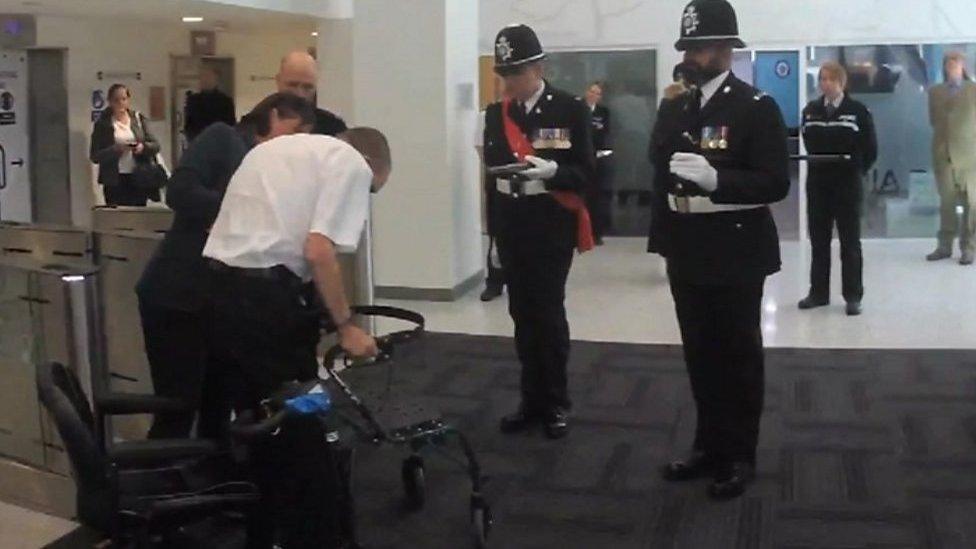Motor neurone disease: Northampton mum 'needs to see daughter start school'
- Published
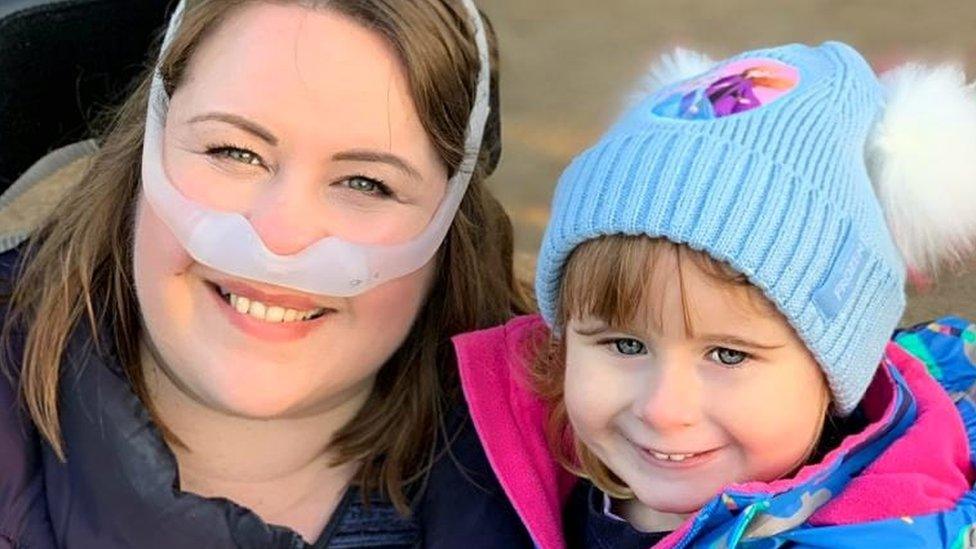
Emma started a blog and a support group to help others in the same situation
When she was diagnosed with motor neurone disease (MND), Emma Moss was given a 50/50 chance of surviving for two years. Now she writes a blog and runs a support group - and is determined to live to see her daughter's first day at school.
Emma still remembers the day she realised she had MND.
Having experienced twitching in her legs in 2017, she went to her doctor, who thought it was due to a vitamin D deficiency.
But when she started having trouble with her grip, further investigations revealed the true cause in May 2018.
"The doctor asked 'have you had any trouble swallowing?' and my world shifted. Suddenly everything fitted into place," she says.
"I just screamed and screamed. MND wasn't even mentioned but I just knew."
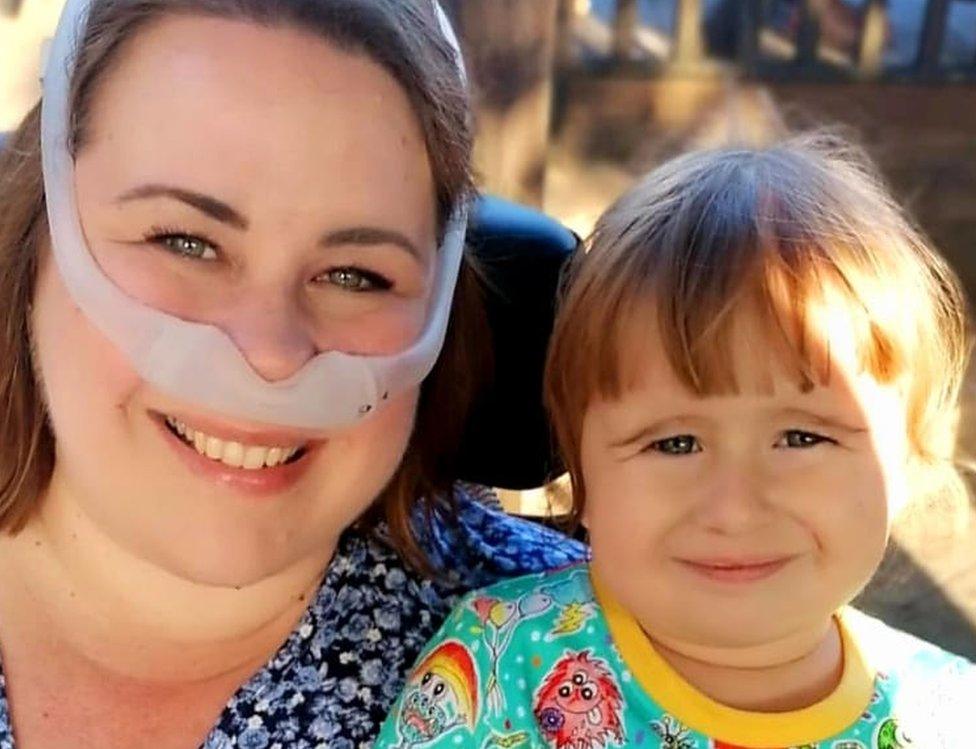
Emma says the support group she founded is a place for "striving to live"
Emma, from Northampton, is now in a wheelchair and relies on life support ventilation 24 hours a day. The disease is "horrific beyond belief", she says.
"I'm slowly watching my body fail and it's unthinkable that I could still swim, dress myself, feed myself, cook and look after my child such a short time ago."
However, she says it is a life still "absolutely worth living".
Emma has set herself the goal of living to see her daughter Veryan start school next September.
"It's so important to me to stay positive. I will do everything I can to fight this and be there for that milestone," she says.

What is motor neurone disease?
MND is a fatal, rapidly-progressing, incurable disease affecting the brain and spinal cord
It attacks the nerves that control movement and affects how people walk, talk, eat and breathe
It kills a third of people within a year and more than half within two years
About 10% live for 10 years or more
There is a 1 in 300 risk of getting MND across a lifetime
It affects up to 5,000 adults in the UK and 200,000 people alive today will be diagnosed with it
Scientists researching new treatments say they desperately need more investment
The Motor Neurone Disease Association (MNDA), external, MND Scotland, external and the My Name'5 Doddie Foundation, external's new campaign #United2EndMND asks the government to increase its investment of £3m a year to £50m over five years for targeted MND research on breakthrough therapies
Source: MNDA

Emma was forced to leave her job as deputy head of a school after her diagnosis. Her husband Terry gave up his personal training business to become her full-time carer, leaving them with no income.
She says she feels "incredibly guilty" she had no life insurance in place.
"It was a huge mistake. I'm urging other people to get life insurance, especially if they have dependants or a partner they want to protect. This could happen to anyone," she says.
A fundraising page has raised more than £30,000, helping them pay for medical equipment and house adaptations.
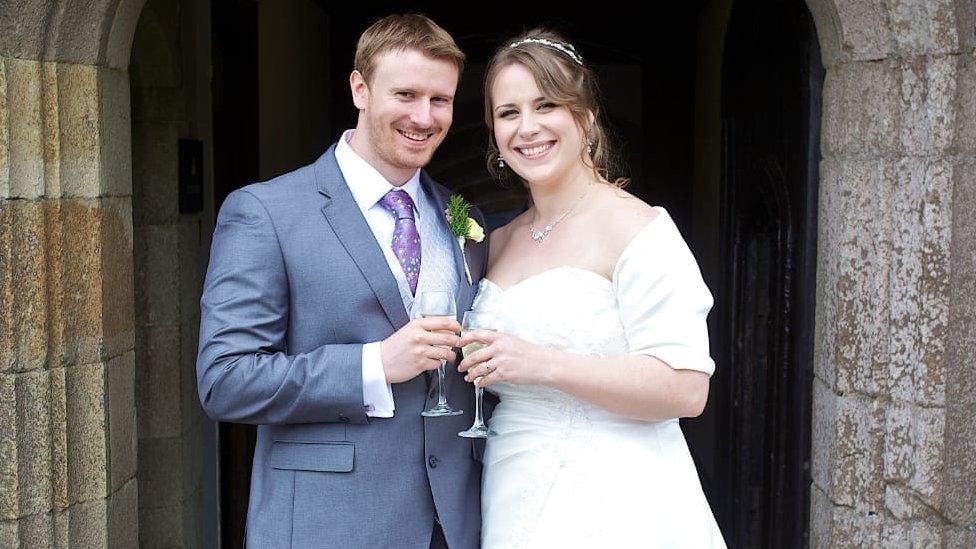
Emma was forced to leave her job as deputy head of a school and her husband Terry gave up work to become her carer
MND kills more than half of people within two years of diagnosis. But Emma says Terry constantly reminds her that about 10% survive for 10 years or more and he "refuses to accept any other option".
Emma turned 40 on Boxing Day - a major milestone that she had her eye on when first diagnosed.
"It was in the back of my mind that perhaps I wouldn't make it to 40, so that is pretty amazing," she says.
Emma's doctor has agreed to give her a tracheotomy in the future, which is likely to extend her life, but is rarely offered in the UK.
"Although living with a tracheotomy can be a challenging life, I believe everyone should have the choice to take that step," she says.
Shortly after she was diagnosed, she began a Facebook blog, 'Mummy with MND',, external which now has 22,000 followers.
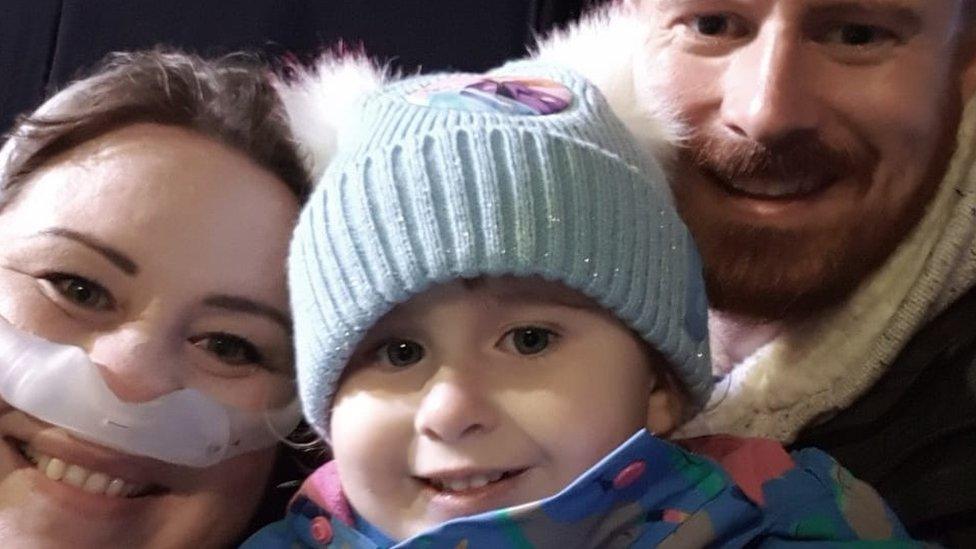
Emma and Terry say their three-year-old daughter Veryan is their whole world
"I was in a pit of despair when I was diagnosed. I went on these forums and they were full of remembrance posts," she says.
"I was looking for another person with MND who was young and I came across someone called Chris Rimmer.
"Chris took me under his wing and changed my life. He showed me the other road - doing everything you can to live rather than just accepting you are going to die."
Together they started the Facebook support group 'MND Warriors United', which has 1,200 members, most of whom have the disease.
It is a place for "striving to live" and "helping each other stay positive" and Emma says the friends she has made have kept her going.
You might also be interested in:
There is a lot of cause for hope in the MND community, she says. Scientists believe a breakthrough could be imminent and it could ultimately be cured in the future.
But Emma says progress is being hindered by a lack of funding.
"This is not just a mother's hope, this could really happen in the next few years. We have the most brilliant minds working on this in the UK. We just need more funding."
Emma's daughter Veryan turns four in January and Emma describes her as the light of her life and the "funniest, chattiest, nature-loving little girl".
"We had IVF and it took us seven years to have her. Veryan is amazing, she is all we have ever wanted and is our whole world," she says.
"She knows my legs and diaphragm aren't working and she just completely accepts me for who I am."
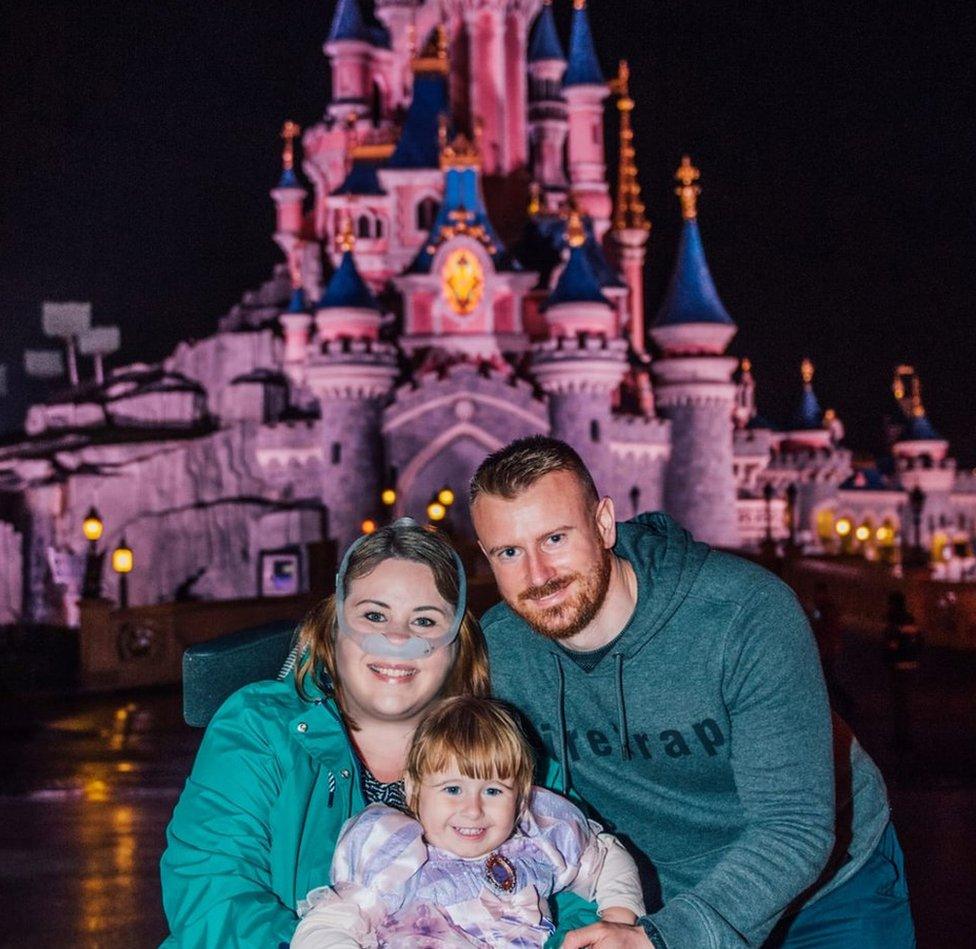
Emma and Terry dream of taking Veryan back to Disneyland Paris
Coronavirus has had a profound effect on the family. It has made their world smaller, at a time when they want to make more memories.
Emma dreams of taking Veryan back to Disneyland Paris and is desperate to get the Covid-19 vaccine in the hope of making that possible.
Her next main goal is to be there to watch Veryan walk through the gates on her first day at school.
"It is a huge milestone. Some days I feel really close to it and think 'Yes, of course I will see this.' Then reality sets in and I know things can happen quickly.
"I just try not to dwell on those negative thoughts. I do a lot of visualisation, in which we are all together as a family on that day and far beyond."

Find BBC News: East of England on Facebook, external, Instagram, external and Twitter, external. If you have a story suggestion email eastofenglandnews@bbc.co.uk, external
Related topics
- Attribution
- Published8 December 2020
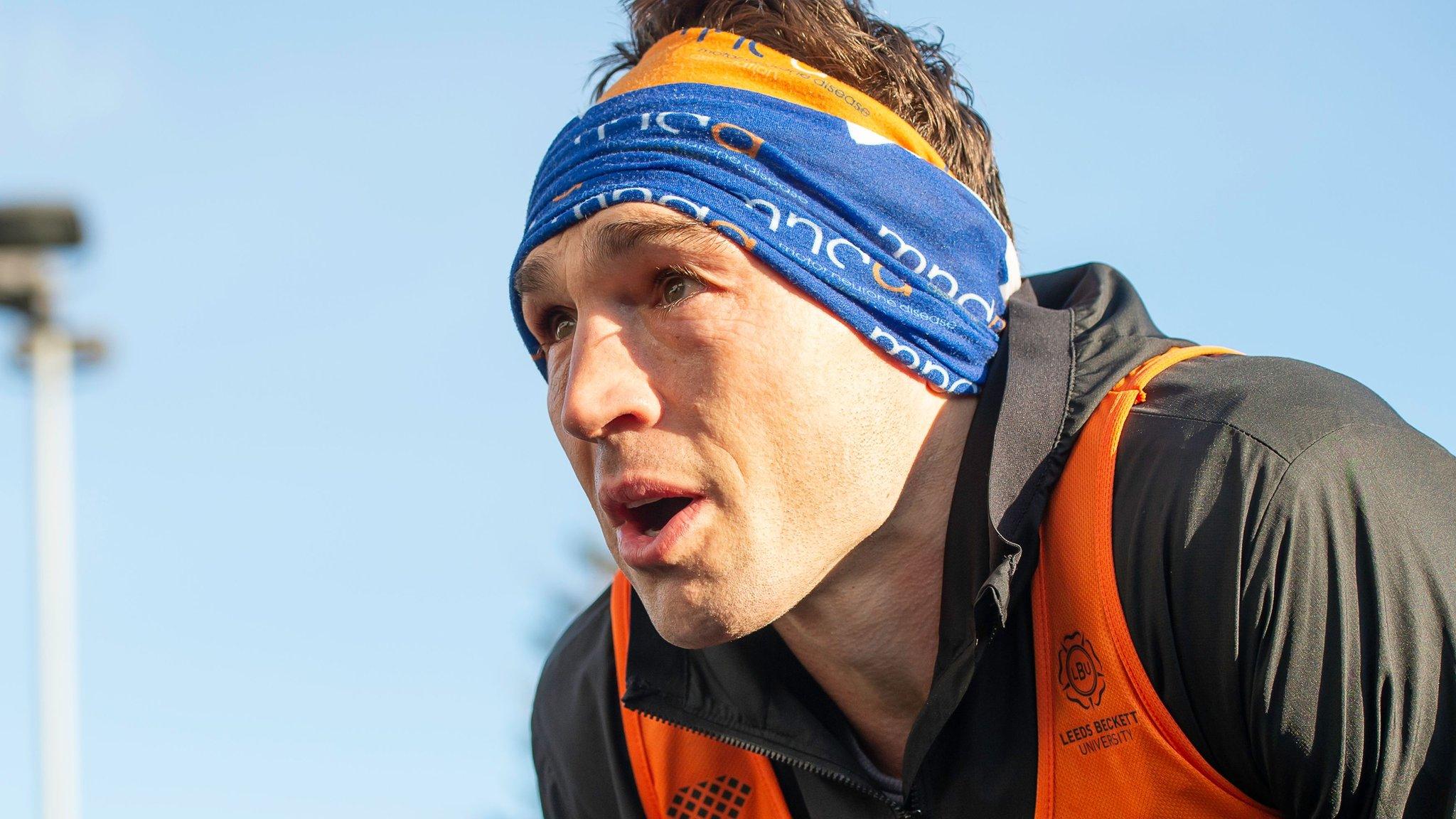
- Attribution
- Published30 October 2020
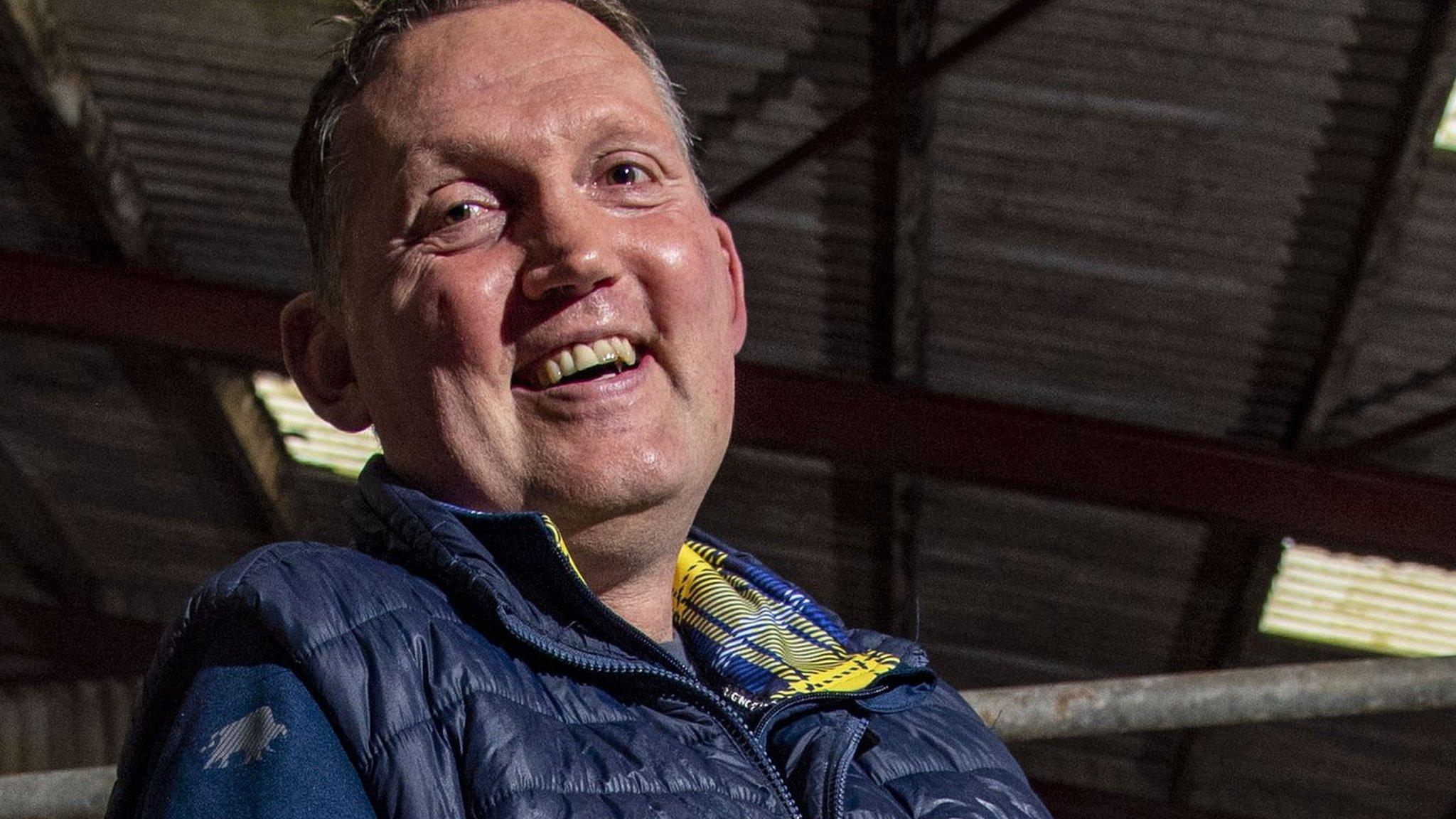
- Published25 September 2020
